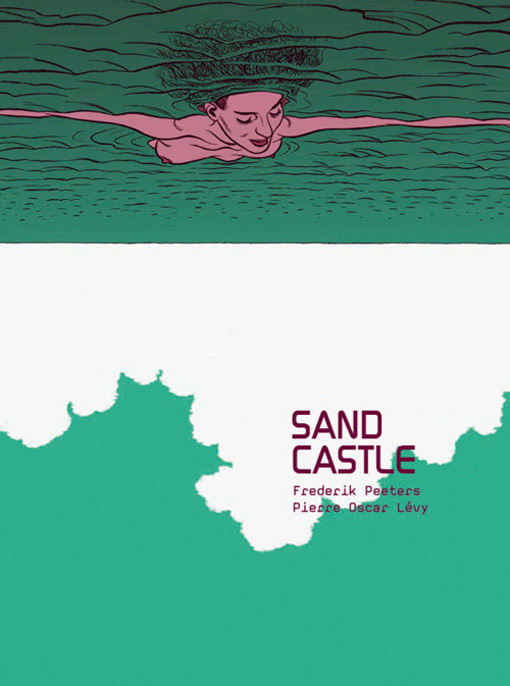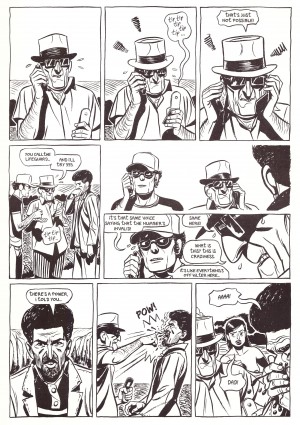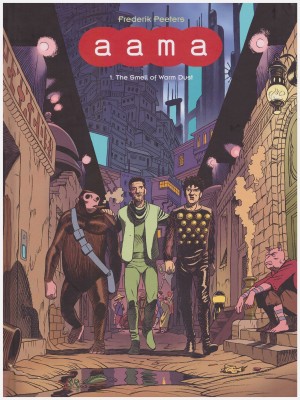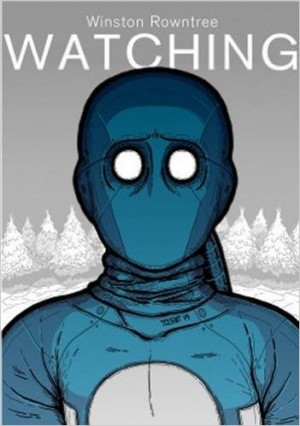Review by Ian Keogh
Sand Castle is a memorably creepy and disturbing meditation on the inevitability of death, which isn’t a topic that’s been widely explored in graphic novels. While the titular analogy is obvious, this isn’t a graphic novel that reveals its secrets, nor is any meaning very clear. Is it an ecological fable? Is it a character study? Certainly the latter, as it appears to deal with humanity in microcosm, sharing out personality traits and concerns among the relatively few cast members.
The book begins as a man we later learn to be Algerian steps out of a cave to see a young woman swimming naked in the cove below. He doesn’t stop to watch, but later sees that she appears to have died, possibly after hitting her head diving. A number of other people then arrive at this remote shore area, a couple of family groups in cars, and others thereafter. As the day passes parents notice their children have grown very quickly in a matter of hours, and when the corpse washes up on the shore some blame the man from Algeria. A phone call is made to the police, but every subsequent phone call generates a message that the number isn’t in use.
There’s a point at which Pierre Oscar Lévy has one of his characters run through the possible causes of what the people are experiencing, echoing the alternatives readers may be considering. The horrible truth for the cast is that whatever’s happening it’s beyond their control and they’re ageing far more rapidly than usual, every passing hour equivalent to two years of a normal human lifespan. Frederik Peeters illustrates all this very skilfully in a matter of fact manner that matches the odd sterility of the script. He ages the cast well, and invests them with individual personalities.
Around the halfway point the reality of the situation, if not the reasons for it, are obvious to all, and the plot shifts toward an inspection of what priorities are when death approaches rapidly. Toward the end Lévy incorporates a fable about a King for whom death comes, but who manages to negotiate a reprieve and yet is surprised to discover that death avoids all protections he subsequently puts in place. The meaning and moral of that fable are at least clear, but how it relates to the ongoing experience isn’t.
An elusiveness about the script frustrates anyone who expects structure, answers or even interpretation. The circumstances are an irrelevance, because the meaning lies in the reactions to them. Some rage against the dying of the light while others search for escape or experience. Much like death, Sand Castle is what it is, and doesn’t change into what we might want it to be.





